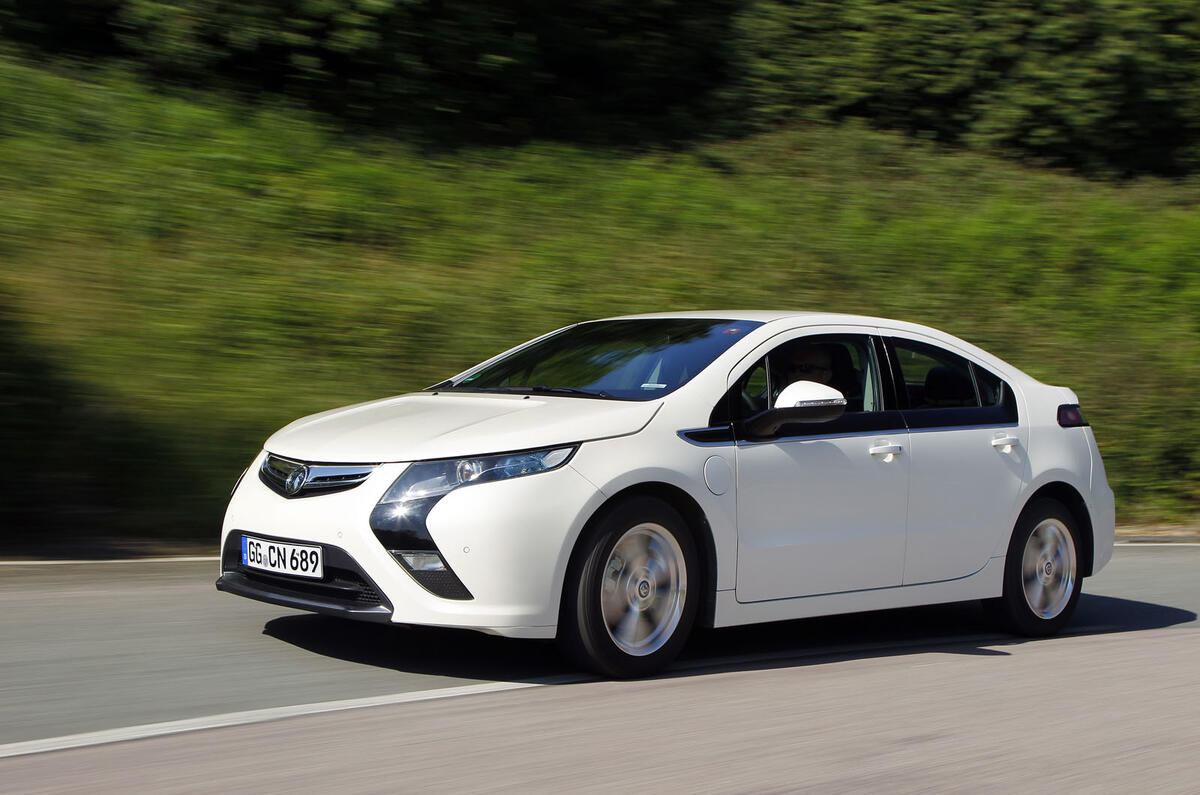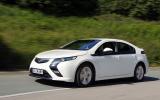What is it?
For many months, we’ve known all the vital statistics of GM’s new extended-range electric saloon, the Ampera, except one: how it feels to drive on a journey.
We’ve driven it briefly on test tracks and peered into its mechanical bowels. But we have never before passed that critical point where the charging engine starts, and we’ve never sampled the car on British roads.
The chance came last week, when we drove Vauxhall’s first Ampera between its Luton HQ and the factory at Ellesmere Port, near Liverpool, where the new Astra (on whose platform the Ampera is based) is made. Vauxhall hopes Ellesmere will be chosen for Ampera production – and took the car on a 170-mile journey to the head of the potential production line to show its seriousness. We drove about half the distance.
What's it like?
The Ampera feels almost eerily like an Astra. Its steering effort, gearing and responses are very similar. Its ride comfort is similar, too, though the usual nose-heaviness of the classic transverse front-drive model is reduced by the weight of the battery pack under the rear seat. Weight distribution is close to 50/50, and you can feel it.
Instead of a normal engine note you get the quiet whirr-whine of an electric motor. However, most of the time on Britain’s poor roads the motor is drowned out by road and wind noise. Indeed, the car’s refinement makes it clear that the creators of E-REVs will have to get much better at noise reduction.
As for the all-important engine start, which happened as the range countdown in the avant-garde instrument pack reached zero, it was truly imperceptible. Just occasionally, on gradients or under acceleration you hear a distant whirr, but it is never more than subdued.
Performance is weaker as speeds rise, but we were able to bowl along easily with the motorway traffic. At our first stop, after a total of 80 miles, a rough estimate that included the first 40 miles of battery power put our fuel consumption at over 150mpg. Clearly, the car’s tailpipe CO2 emissions are going to be a fraction of those of its all-petrol and all-diesel brethren.
Should I buy one?
Buying an Ampera early in its life strikes me as a complicated mixture of good and bad. On one hand you’ll get the kudos among your peers of being an early adopter, and someone who cares enough about the environment to commit money to the cause.
What’s more, you’ll discover what 175mpg feels like. But on the other, you’ll pay big money (especially if the government withdraws its promised subsidy of £5000 a car) and you’ll be buying something with no resale track record at all. Bottom line: it’s a risk.



















Join the debate
Add your comment
Re: Vauxhall Ampera
Re: Vauxhall Ampera
So as I understand it this Ampera car is charged from the mains and from its petrol engine. At speeds up to 70mph approx it purely uses the battery until the battery is depleted by 60% approx when it is then powered by the petrol engine recharging the battery. Above 70mph approx the petrol engine's power drives the generator which is also a motor and that motors power is added to the main motor to increase speed as the main motor would not be powerful enough and would drain the battery too quickly. If my understanding is correct how long can the Ampera be driven at speeds above 70mph whilst the main motor is draining the battery at maximum rate whilst the main battery is not being charged as the petrol driven generator is working as an additional motor to produce the desired speed. Can this car maintain a constant 100mph whilst there is petrol in the tank? Or is the constant speed lower than that and dependant on battery charge? Like all these electric cars it seems to rely on fossil fuels in its tank or the power stations tanks.
Re: Vauxhall Ampera
If the gov incentive is removed, I can see little reason for gm to push for sales in the UK. Funny that they pushed for Nissan and Toyota to build their hybrids in the UK. Most Euro (even the US) will offer cash incentives to kick start sales. In the overall market its peanuts since sales will be tiny initially. The congestion charge incentive might help but not everyone commutes into inner London (thankfully).